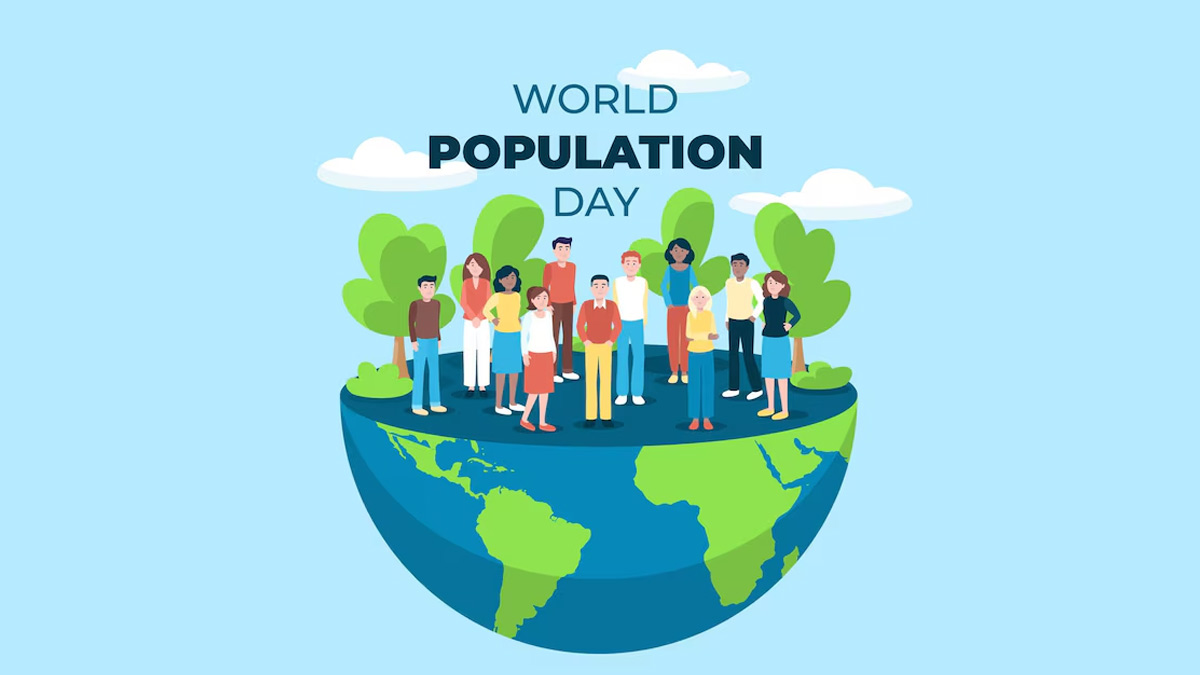
Did you know that in the past year, the global population reached eight Billion, and India surpassed China to become the world's most populous country? There comes the need for World Population Day awareness. World Population Day is observed annually on July 11. This day is dedicated to raising awareness about global population issues and their impacts on development and the environment. The event, organised by the United Nations, brings attention to the importance of family planning, gender equality, maternal health, and human rights.

World Population Day is celebrated on July 11 each year. This date was chosen to highlight the urgency and importance of population issues. It serves as a reminder of the global effort required to manage population growth and ensure sustainable development.
Each year, World Population Day adopts a specific theme to focus on particular aspects of population growth and its implications. The theme for World Population Day 2024 is yet to be announced by the United Nations Development Programme (UNDP).
As per the United Nations official website, UN Secretary-General António Guterres said that, As the theme of this year’s World Population Day reminds us, investing in data collection is important to understanding problems, tailoring solutions, and driving progress. So is finance. I urge countries to make the most of the Summit of the Future this year to unleash affordable capital for sustainable development.”
Don't miss: Nunavut Day 2024 In Canada: Date, History, And Significance

World Population Day was established by the United Nations Development Programme (UNDP) in 1989. The decision to create this observance was influenced by the public interest generated by the ‘Day of Five Billion’, which was marked on July 11, 1987, when the world population reached an estimated five billion people, as per a report by the United Nations. Recognising the challenges and opportunities presented by this milestone, the UNDP proposed the annual observance to focus on the importance of population issues.
According to the United Nations official website, it states that, “By resolution 45/216 of December 1990, the United Nations General Assembly decided to continue observing World Population Day to enhance awareness of population issues, including their relations to the environment and development. The Day was first marked on 11 July 1990 in more than 90 countries.”
Since its formation, World Population Day has aimed to draw attention to various population-related issues, including family planning, maternal and child health, poverty, gender equality, and environmental sustainability. It encourages governments, organisations, and individuals to take action and implement policies that address these issues effectively worldwide.
Don't miss: Elsa Marie D'Silva: The Woman Who Broke The Silence Around Sexual Harassment With SafeCity App

Here are some key reasons why World Population Day is important:
1. The day helps raise awareness about critical population issues, such as overpopulation, reproductive health, and gender equality. It educates the public about the impacts of rapid population growth on resources, health, and the environment. “The UN Population Division collaborates closely with the agencies, funds, programs, and bodies of the United Nations system in the implementation of the work programme on population and in the follow-up to the International Conference on Population and Development”, says the UN.
2. World Population Day advocates for the rights of individuals, particularly women and girls, to access quality health services, education, and economic opportunities. It emphasises the importance of family planning and reproductive health in improving the overall quality of life.
3. Addressing population issues is crucial for achieving sustainable development goals (SDGs). By focusing on this, the global community can work towards reducing poverty, improving health outcomes, and ensuring environmental sustainability.
4. The observance encourages governments and policymakers to implement strategies that address population-related challenges. It promotes the development of policies that support family planning, gender equality, and sustainable resource management.
For more such stories, stay tuned to HerZindagi.
Image credit: Freepik
Also watch this video
Herzindagi video
Our aim is to provide accurate, safe and expert verified information through our articles and social media handles. The remedies, advice and tips mentioned here are for general information only. Please consult your expert before trying any kind of health, beauty, life hacks or astrology related tips. For any feedback or complaint, contact us at [email protected].